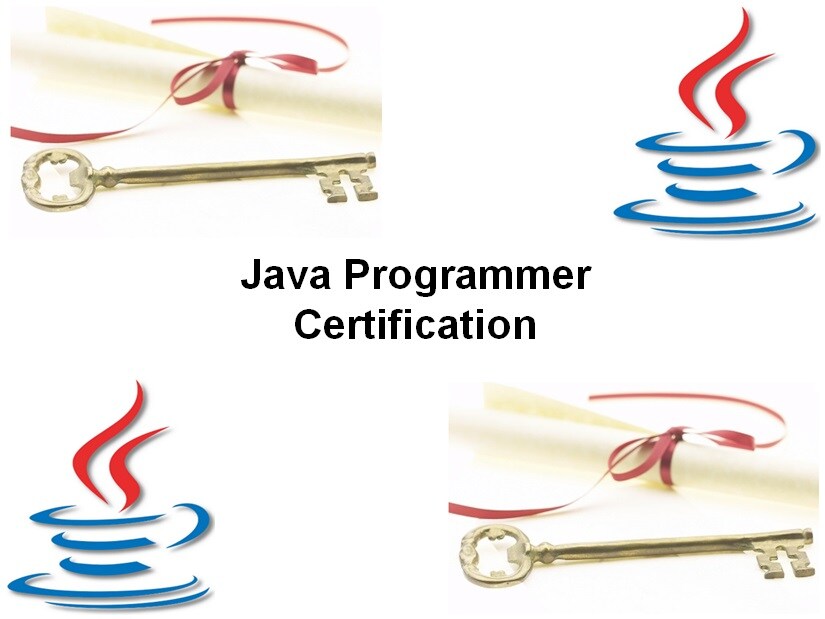-
Learning by doing
-
Trainers with practical experience
-
Classroom training
-
Detailed course material
-
Clear content description
-
Tailormade content possible
-
Training that proceeds
-
Small groups
In the course Java Certification participants are prepared for the Java OCA (Oracle Certified Associate) and OCP (Oracle Certified Professional) exam.
The course is an exam training in which the central focus is on the questions that can be asked on these exams. On the basis of test questions and test exams, the subjects that are part of the exams are treated.
Special attention is paid to topics that are often considered difficult such as concurrency and synchronization. As well as to features that have been added in later versions of Java such as lambda's and streams.
Also discussed are generics, collection classes, database access with JDBC and new I/O. Subjects like declarations and access control, object orientation, assignments and operators, flow control, exceptions and assertions, strings, I/O formatting and parsing, inner classes are also on the program.
Depending on the interest of the participants certain components can be treated with more depth if so desired.
The course Java Certification is intended for experienced Java developers who want to prepare themselves for the Java 8 programmer exams OCA (Oracle Certified Assciate) and OCP (Oracle Certified Professional).
To participate in this course knowledge of and ample experience with object oriented concepts and Java programming is required.
The course is an exam training in which, apart from theory and demos, various test exams with test questions for the exams are discussed. The theory is interspersed with practical exercises. The course material is in English. The course times are from 9.30 am to 16.30 pm.
After successful completion of the course attendants receive an official certificate of participation in the Java Certification course.

Module 1 : Concurrency |
Module 2 : Lambda's |
Module 3 : Generics |
|
Concurrency Package Task Scheduling Framework Executor Interface ExecutorService Callables and Futures ScheduledExecutorService Synchronizers Semaphores and Exchanger CountdownLatch CyclicBarrier Concurrent Collections BlockingQueue Interface Lock Interface Reentrant Locks Atomic Variables |
Passing Functionality Lambda Expressions Lambda Syntax Lambda Variable Access Lambda Scoping Rules Functional Interfaces Predicate Interface Consumer Interface Supplier Interface Function Interface UnaryOperator Interface BinaryOperator Interface Method References @FunctionalInterface Custom Functional Interfaces |
What are Generics? Type Erasure and Raw Types Generics and Subtyping Bounded Type Parameters Wildcards Generics in Collections ArrayList and LinkedList TreeSet and Hash Set HashMap and TreeMap ArrayDeque objects Comparable and Comparator Collections Streams and Filters Iteration using forEach Filtering using Lambda’s Stream Pipeline |
Module 4 : Database Access |
Module 5 : Streams |
Module 6 : New IO |
|
JDBC Architecture JDBC Drivers and URL’s Database Connections Executing Statements Querying Databases Update Statements Retrieving Results Handling Errors Prepared Statements Database Metadata Transactions Commit and Rollback Rowset Interfaces |
What are Streams? Lazy Evaluation and Parallelization Core Stream Methods forEach, Map and Filter findFirst and findAny toArray and collect Optional Class Limiting Stream Size allMatch and anyMatch Number Specialized Streams Reduction Operations Parallel and Infinite Streams collect and flatMap Method |
What is NIO? Synchronous I/O Processing Asynchronous I/O Processing Working with Buffers IO Channels Selectable Channels Selectors Selection Keys Character Sets Using Path Class Directory Traversing PathMatcher class Using WatchService |
